
PUBLISHED BY: PowerMeUp Publishing Copyright 2012-2019 LearnKoreanFast.com ISBN 9784907477042 ISBN 9784907477073 (e-book) All rights reserved. No part of this publication may be copied, reproduced in any format, by any means, electronic or otherwise, without prior consent from the copyright owner and publisher of this book. The conversations here are all a work of fiction. All characters, names, places and events are the product of the author's imagination or used fictitiously. ____________________________________________ Table of Contents
Introduction Skip this at your own risk! All study is not bad. However, much of it is boring, and worse, a waste of time.
This book is neither of those things. Why waste your time studying boring things or in a boring way? Just because its the way most everyone is doing things? This book is for any level of Korean language learner who can read and pronounce Hangul. This is not a textbook in the usual sense. It is really more of a practice and example book. There are no lessons lain out for you. Also, its very unlikely you will ever have any of these conversations word for word in your real life.
In fact, these translations may at times not be exactly what a Korean might say in this situation, but it will be close. The reason is the conversations and sentences were constructed to give the closest of literal translation possibilities. So, there are no idioms, expressions, or anologies here. There are just straightforward sentences. Yes, there may be many other ways to translate them. Thats not the point.
That may seem an odd statement to make at this point, but if you consider how many possibilities there are for most conversations other than How are you? and Im fine, and you? there really are very few practice conversations in any textbook you might actually have word for word. Why not have fun learning some structures of conversation, some interesting and useful phrases, and exploring the language on your own rather than just be taught to parrot some conversations you will never actually have anyway? These are practice conversations for you to get exposure to the way normal, comfortable conversations occur, and while there are of course a number of ways to translate or say the same thing in any language, the examples chosen are done so in a way to narrow down those choices. Each conversation is intended to be both practical and interesting to help you to more easily remember the vocabulary. You will also see several short phrases that are repeated throughout various conversations. This will also help you through repetition to learn those phrases more easily by seeing them in context. Each conversation is between two people who presumably know each other fairly well.
This is important to keep in mind for context and for the levels of politeness either used or implied. In fact, the situation is more helpful in aiding understanding than knowing the vocabulary, so invest a little time into understanding the context of each conversation you meet whether in this text of any other. It will help you to understand better and more quickly. You will not find a lot of notes or explanations for several reasons. The main reasons being that by looking at the conversations and the translations you should be able to figure out on your own which parts go together, and the more of this connecting and figuring out you do on your own the easier it will be for you both to acquire the language and to remember it. This also allows you to work at this at many different levels and at the levels that suit or interest you.
For example, you might see some parts as simply being useful vocabulary or expressions, while someone else might notice that the sentence structure can be used for other instances by doing simple replacing of either the noun or the verb stem. You might also find that going over the conversations and memorizing them is great for you when you are a beginner, but as you progress, revisiting the conversations and digging deeper into the sentence structures can help you to expand your ability to communicate even more. The font is intentionally a little large in order to help you to read the hangul characters a little more easily. Until you are really accustomed to the shapes of Korean words, it takes a little extra time to read some of the words, even when they are typed. Larger fonts help you to look, then say at a faster, more comfortable pace. Some things to keep in mind as you go through this book: - Korean language seldom uses the subject in sentences where it is understood.
This is true for people or objects. That means there are very few instances where pronouns or you are used. Are you okay? in Korean roughly translates to Okay? more often than not. - Yes, there are other ways to say what is being said in these conversations. Each translation has been done in order to reduce the amount of time you need to understand what part of the Korean sentence matches its corresponding part in the translated sentences. - These conversations were originally written and structured in a way to facilitate translation.
They are still as natural as possible in both Korean and in translation. While you may not ever (sometimes hopefully never) have need for any of these conversations word for word, any phrase you see here is current, appropriate vocabulary. - Verbs come last. Korean is a verb driven language. Mostly you will see Subject (implied or understood as well) - Object - Verb sentence structures. o 1. o 1.
Polite levels used for speaking to those who are older than you or above your social station. o 2. Moderate levels used to talk to those who are among your peer group. o 3. Low level (sometimes called impolite as classification, and is when used in the wrong settings) used for speaking to someone much lower than your status in age or social position, but also used to show familiarity. This book tries to stick to the middle ground here.
No one should be greatly offended by any of the usages here although it is probably not advisable to use them for talking to the president of your college or company. That said, lets look at several ways you can use and benefit from these conversations. - You can just read them and practice them alone by reading them aloud or to yourself. - You can practice them with a partner. The dialogs are divided to separate pages for this. - You can expand the conversations. - Take a look at the sentences and see if there are any pieces you can work out that may even contain new vocabulary. - Look for phrases and fragments that you can use in various contexts and situations. - Most of all have fun! 1. - Most of all have fun! 1.
Can I ask you a big favor? Hyocheol: Hey, hows it going? Younghwa: Oh, hey. I guess things are okay. Hyocheol: Really? Whats the problem? Younghwa: Ummm Can I ask you a big favor? Hyocheol: Of course. Younghwa: Well, I need 1,000,000 won Hyocheol: Wow! I see Why do you need so much money? Younghwa: My car broke down, and I have to pay for the repairs. Hyocheol: Thats too bad. When do you need the money? Younghwa: Actually I need it today before 5:00.
Hyocheol: Ok. Ill be happy to help you. Younghwa: Thats great. I really appreciate it. Hyocheol: No problem. When can you pay me back? Younghwa: I can pay you back after the first of next week without a doubt.
Hyocheol: Then, can you go with me now to the ATM? Younghwa: That sounds great. And, really, I appreciate this. Hyocheol: Oh, dont mention it. Thats what friends are for. Lets go! Younghwa: Yes, lets go. ? : , ? : , ? . : ? ? : ... ? : . : , ... : ! ... ? : , . : . ? : , 5 . : .. : , .. : . ? : . : , ATM ? : , .. : .... ! : , . 1. ? : , ? : ______________________________________________________________________________ : ? ? : ______________________________________________________________________________ : . : ______________________________________________________________________________ : ! ... ? : ______________________________________________________________________________ : . ? : ______________________________________________________________________________ : .. : ______________________________________________________________________________ : . ? : ______________________________________________________________________________ : , ATM ? : ______________________________________________________________________________ : .... ! : ______________________________________________________________________________ 1. ? : ______________________________________________________________________________ : , ? . : ______________________________________________________________________________ : ... ? : ______________________________________________________________________________ : , ... : ______________________________________________________________________________ : , . : ______________________________________________________________________________ : , 5 . : ______________________________________________________________________________ : , .. : ______________________________________________________________________________ : . : ______________________________________________________________________________ : , .. : ______________________________________________________________________________ : , .

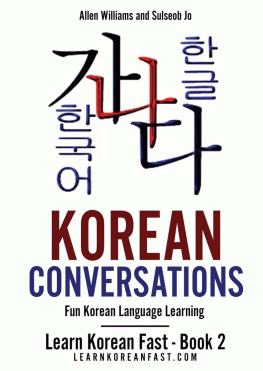
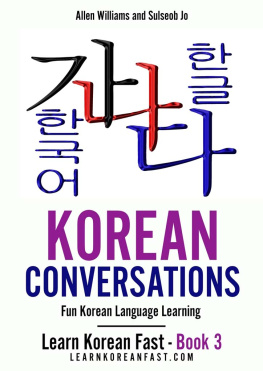
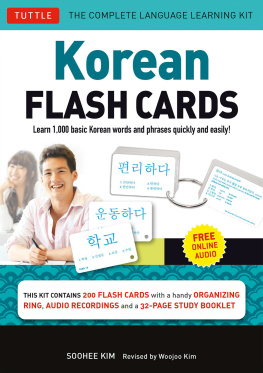
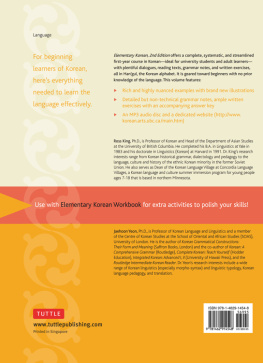


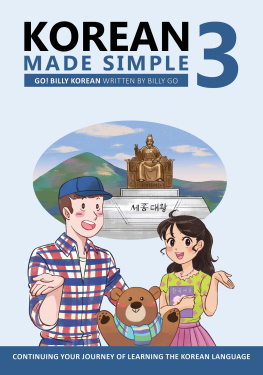
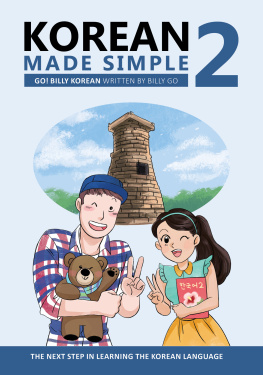
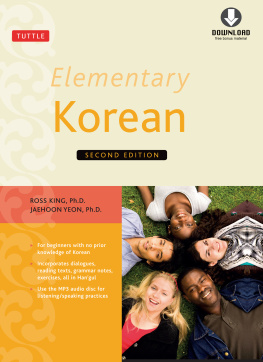
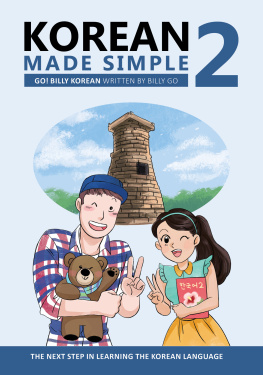
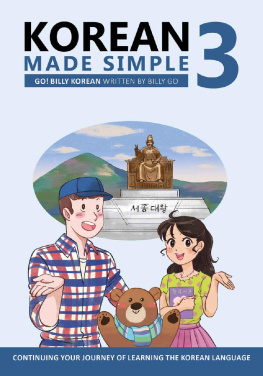
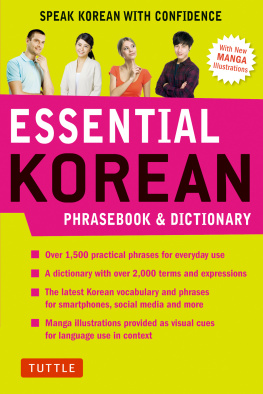
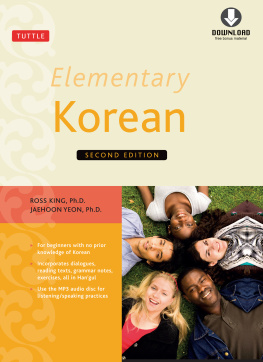

 PUBLISHED BY: PowerMeUp Publishing Copyright 2012-2019 LearnKoreanFast.com ISBN 9784907477042 ISBN 9784907477073 (e-book) All rights reserved. No part of this publication may be copied, reproduced in any format, by any means, electronic or otherwise, without prior consent from the copyright owner and publisher of this book. The conversations here are all a work of fiction. All characters, names, places and events are the product of the author's imagination or used fictitiously. ____________________________________________ Table of Contents Introduction Skip this at your own risk! All study is not bad. However, much of it is boring, and worse, a waste of time.
PUBLISHED BY: PowerMeUp Publishing Copyright 2012-2019 LearnKoreanFast.com ISBN 9784907477042 ISBN 9784907477073 (e-book) All rights reserved. No part of this publication may be copied, reproduced in any format, by any means, electronic or otherwise, without prior consent from the copyright owner and publisher of this book. The conversations here are all a work of fiction. All characters, names, places and events are the product of the author's imagination or used fictitiously. ____________________________________________ Table of Contents Introduction Skip this at your own risk! All study is not bad. However, much of it is boring, and worse, a waste of time.